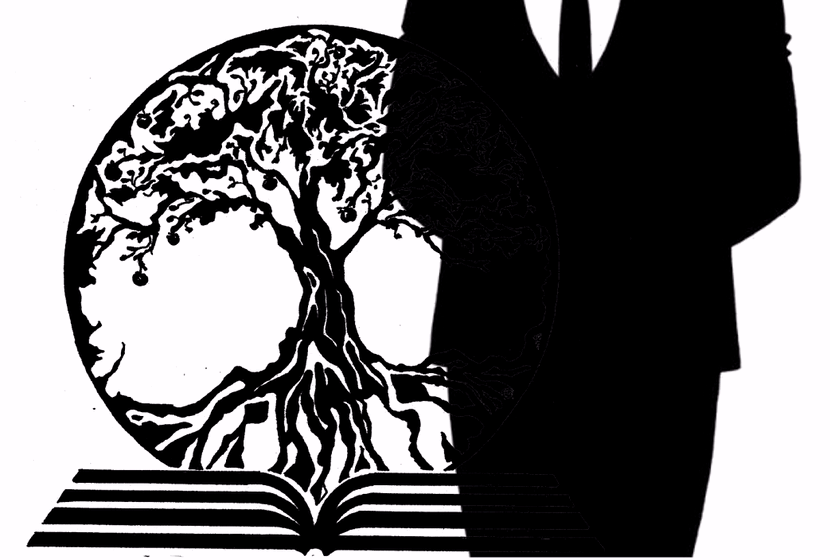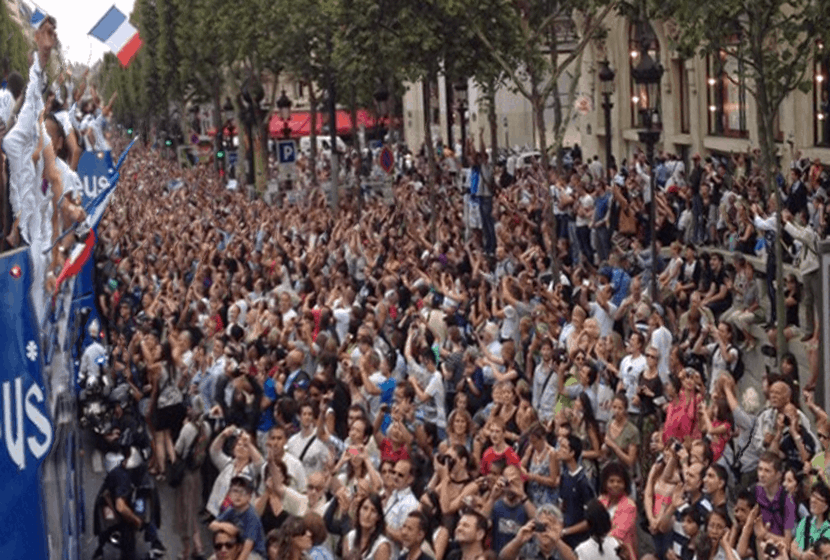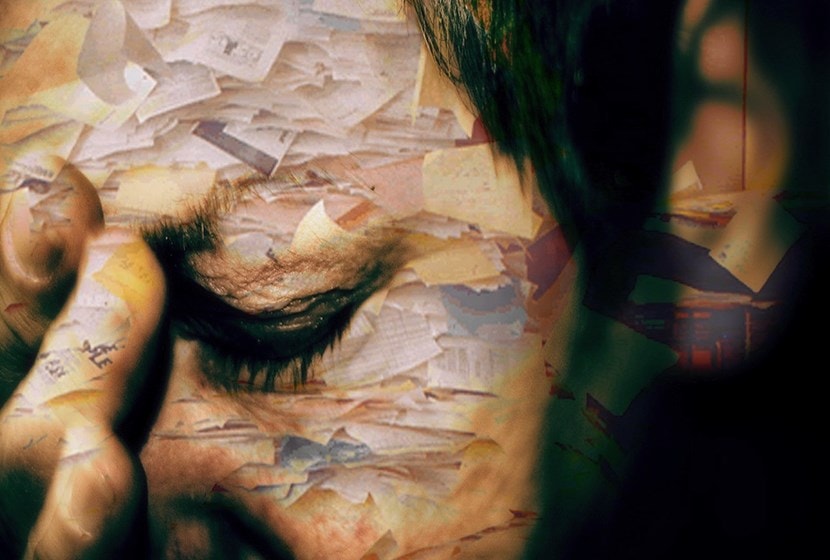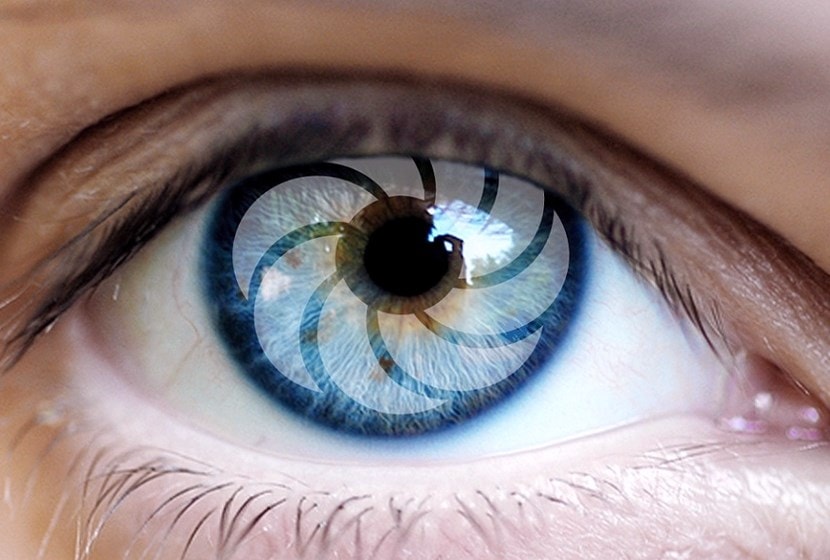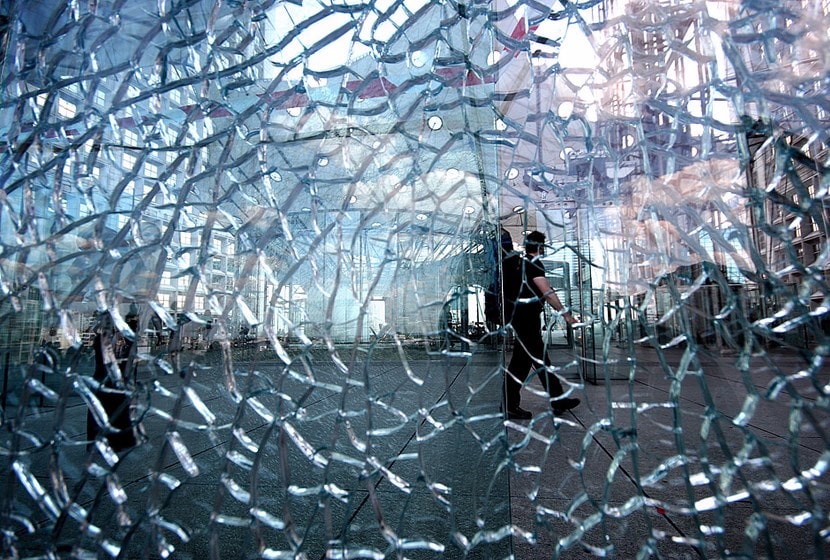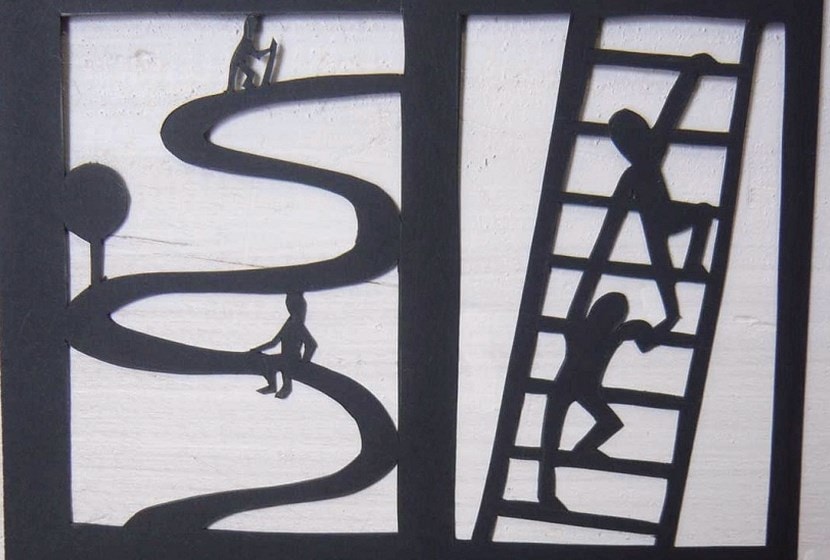The universality and diversity of the knowledge available through hyperinformational flows calls for the collectivisation of knowledge for the first time. It is impossible today for a single human being or a single group to master all the knowledge made available to them on digital networks..
"Encyclopedia" meant a circle of knowledge, i.e. a linear, one-dimensional geometric figure, closed in on itself through an infinite number of recursions.
The possibilities offered today by digitization and computerized ways of circulating and navigating in networks are creating a new type of knowledge organization. We are no longer dealing with a one-dimensional circle of knowledge, or even a single hypertextual network. We are confronted with a multidimensional space composed of dynamic and interactive representations that are expressed through a multitude of forms: still or animated images, sounds, texts, interactive simulations, databases, expert systems, virtual realities, animated cartographies, etc. The journey through this world is made up of long itineraries, short journeys, long plains and dark forests, chance encounters, neighbourhoods and places of hospitality.
For the first time in history, an individual can switch a signal directly to another individual on the other side of the planet. This capability has until now been reserved for national or transnational telecommunication organizations.
This switched signal, which makes it possible to cross spaces freely in a fraction of a second, is identified by a process that has become instantly trivial; it is the hyperlink, which makes it possible to jump with a simple click from node to network node, from one computer to another, from one piece of information to another, from one universe to another. It is the driving force behind the accelerated and chaotic evolution of the information society.
It frees access to information, once padlocked like a treasure, it infuses it everywhere, leaving traces of knowledge in its wake. It opens up access to a vast, fluid and constantly moving network of research centres, libraries, data banks, men, women, media, youth communities, bookstores and dream merchants.
 Hypertext opens the horizon of a tumultuous ocean, it leaves individual-browsers free to make their own choices, responsible for drowning them in the ocean of information or conquerors of the knowledge they seek. It "transforms the memory of each into the memory of all. » (1). The complex nature of this universe brings us closer to the complexity of the world than it takes us away from it. From the fixed organization of knowledge separated into disciplines to the chaotic fragmentation of data, the new information space dematerializes the separations and offers a dynamic cartography, in constant metamorphosis.
Hypertext opens the horizon of a tumultuous ocean, it leaves individual-browsers free to make their own choices, responsible for drowning them in the ocean of information or conquerors of the knowledge they seek. It "transforms the memory of each into the memory of all. » (1). The complex nature of this universe brings us closer to the complexity of the world than it takes us away from it. From the fixed organization of knowledge separated into disciplines to the chaotic fragmentation of data, the new information space dematerializes the separations and offers a dynamic cartography, in constant metamorphosis.
Passive reception gives way to active experimentation. Links and contexts, references and openings weave an immense heterogeneous network, of which each node is itself a network. This vision proposes a new anthropology by highlighting the interplay of alliances now operating between human but also non-human entities.
 For the first time, exclaims the philosopher Michel Serres, "all knowledge is free and equal in law". The network is seen as the expression of a revolution in thinking techniques. This revolutionary aspect is seen as fully profitable in the most enthusiastic comments on the development of virtual universality. The 'network' would thus allow a real reversal of didactic communication, in that it would allow knowledge to come to those who learn. (2).
For the first time, exclaims the philosopher Michel Serres, "all knowledge is free and equal in law". The network is seen as the expression of a revolution in thinking techniques. This revolutionary aspect is seen as fully profitable in the most enthusiastic comments on the development of virtual universality. The 'network' would thus allow a real reversal of didactic communication, in that it would allow knowledge to come to those who learn. (2).
In this space, information is called, ordered, distant, brought together, contracted, juxtaposed... it revolves around the individual; he is no longer a simple receiver who receives the information. It reverses the traditional pattern of the mass media, posing itself at the very centre of the informational whirlwind.
The network then becomes, by its very nature, consubstantial to the sharing of knowledge; it could not have emerged so quickly in our societies if it had not had this characteristic. Knowledge sharing does not mean the distribution of a whole, the parts of which are divided up. The sharing of knowledge is not a partition of knowledge, an apportionment of skills; it is not a space in which everyone would jealously appropriate a field of expertise and specialization. The sharing of knowledge and the emergence of collective intelligence in our societies require the collaboration of all.
The very form of the network, and more particularly the Internet, is conducive to this request: it takes a form of horizontal sociability that breaks completely with the hierarchical and vertical architectures of previous societies. In the knowledge society, the development of the cognitive capacities of each member of the network is not built on the mode of competition or even emulation, but on that of the search for the common good.
(1) Derrick de KERCKHOVE, L'intelligence des réseaux, Odile Jacob, 2000
(2) Michel SERRES, Atlas. Julliard, 1994 and Lecture at Oracle Expo 97, Paris, 1997.
{Jacuzzi on}

